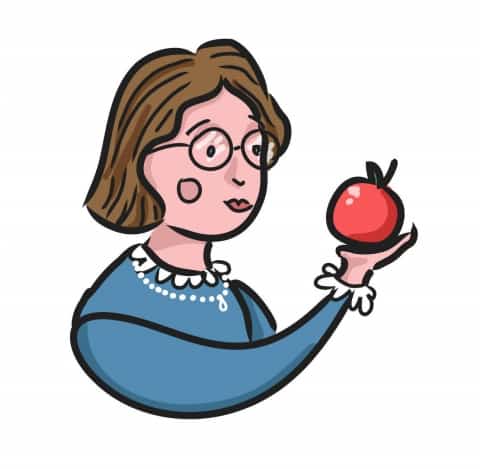 With so much information out there, it can be hard to navigate the murky waters of how your diet influences your body. Everyone’s seen internet claims with various nutrients suggested as the key to a healthy life, but only scientific research can actually tell us what’s truly best for us.
With so much information out there, it can be hard to navigate the murky waters of how your diet influences your body. Everyone’s seen internet claims with various nutrients suggested as the key to a healthy life, but only scientific research can actually tell us what’s truly best for us.
Nutrigenomics takes a hard-science look at food’s role in regulating genes by analyzing how the various series of chemical reactions, called metabolic pathways, that happen within your cells are turned on or off. By understanding this, we can gain better control of our health through nutrients.
Nutrigenomics starts at the genome and builds its way out of the cell. Researchers analyze the movement of compounds through biological environments and the interactions that occur between them.
Right now, a complex interaction of tiny things is working to create your body. From your DNA replicating to your synapses firing away, these microscopic occurrences shape you. You are one thousand whispers of a billion biomolecules. In a very real way, you are your genes.
You contain a blueprint of DNA that is tightly intertwined with proteins. These proteins interact with thousands of chemical markers that tell your genes to be active or inactive. This is a dynamic process that is influenced by everything around you, from the light emanating from your phone to the food you eat.
Chris Eskiw, assistant professor in the College of Agriculture and Bioresources, is interested in how an individual’s genes interpret their diet. His research looks at the delicate interaction between our cells and what we eat.
Eskiw emphases taking the approach of moderation, when it comes to diet and lifestyle, as a way to maximize disease prevention and healthy aging rather than focusing on particular fad diets.
“I get asked all the time, ‘What should I be eating? Is gluten out to get me?’ No, it’s not,” Eskiw said. Eskiw specifically looks at the way certain compounds in food help to minimize the diseases that occur as we age. However, when asked if what he is searching for could be referred to as a “fountain of youth,” Eskiw stated that this isn’t necessarily his goal. “We may refer to it as the ‘molecular fountain of youth,’ but we are not actually interested in immortality,” Eskiw said. “We are interested in living healthier [and] longer.”
Take red wine, for example. We’ve all heard that red wine has health benefits. Turns out there may be merit to this urban legend, and it has a lot to do with a specific chemical found in grapes called resveratrol.
Eskiw explains that research shows resveratrol may help our cells clean up their “cellular junk.” Cleaning up cellular junk — known as free radicals — makes for healthier cells, which makes for a healthier you. However, while the research shows lifespan extension in animal studies, this doesn’t necessarily translate to humans.
So, is red wine the Holy Grail of antiaging? No, not necessarily, but it does open a window through which to observe how the compounds that we ingest are stimulating our genes.
Red wine is not alone in potentially influencing our genes in a positive way. Metformin, a common diabetes drug, appears to have the surprising side effect of lowering incidences of cancers. According to Eskiw, how metformin achieves this effect is still a mystery to be unravelled.
“What we do know about metformin is [that] it tends to cause the cells to not recognize the nutrients in their environment,” Eskiw said.
Essentially, metformin tricks the cells into being content with the amount of fat and protein that they already have. Only the glucose that is necessary to the cell is used, and the rest is discarded — something Eskiw refers to as the cells “cleaning house.”
So, what exactly do a drug like metformin and a drink like red wine have in common? Strangely enough, it seems they may mimic a calorie-restricted diet through the way they influence cellular signals.
A diet lower in calories may decrease the occurrence of age-related diseases — like cancer, diabetes and cardiovascular disease. Compounds like the ones described above give the benefits of a calorie- restricted diet without modifying caloric intake.
The science behind healthy aging and disease prevention is complex, but thankfully, researchers like Eskiw are charting the mysterious seas of biomolecules and nutrient interaction. One day, their research may offer personalized preventative medicine to the rest of us, making the aging process a healthier and more fulfilling experience.
—
Erin Matthews
Graphic: Lesia Karalash / Graphics Editor
Leave a Reply